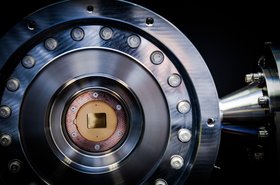Intel has paused plans for new chip factories in Germany and Poland following its disastrous second quarter financial results.
CEO Pat Gelsinger told staff yesterday that both projects were being put on hold for two years, while the opening of a new chip packaging plant in Malaysia could also be delayed.
In August, Intel revealed it lost $1.6 billion in Q2 2024, and announced it would be making 15,000 layoffs across the company as part of a plan to save $10 billion.
Intel puts chip fab plans on hold
Gelsinger said in his memo to staff that Intel has “a lot of work ahead to drive greater efficiency, improve our profitability and enhance our market competitiveness.”
Part of this will involve reviewing the company’s capex spending. Gelsinger said: “We recently increased capacity in Europe through our fab in Ireland, which will remain our lead European hub for the foreseeable future.
“We will pause our projects in Poland and Germany by approximately two years based on anticipated market demand.”
Intel is due to spend €30 billion ($33bn) on a new fab in Magdeburg, Germany, which it announced in 2022 as part of an €80 billion ($89bn) investment in European facilities. The site had been earmarked for production of leading-edge two nanometer chips. Earlier this year, it was reported that construction work on the site wouldn’t begin until 2025 due to issues with the soil at the site.
The Poland assembly and testing facility came with a €4.6 billion ($5.1bn) price tag. It was due to come online in 2027 and create 2,000 jobs.
On Malaysia, Gelsinger said the nation “remains an active design and manufacturing hub through our existing operations.”
He said: “We plan to complete the construction of our new advanced packaging factory in Malaysia but will align the startup with market conditions and increased utilization of our existing capacity.
Intel’s plans for new fabs in Arizona, Oregon, New Mexico and Ohio are unaffected by the changes.
Intel decouples from Foundry Services business
Gelsinger was appointed as Intel CEO in 2021 and immediately launched Intel Foundry Services, a manufacturing business unit designed to help Intel make an impact in the contract chip manufacturing market currently dominated by TSMC.
It was hoped this would help slow years of decline at Intel, but three years on it has yet to bear fruit, and continued delays to new products have left the company playing catch-up despite booming demand for advanced semiconductors.
Gelsinger said in his memo that Intel Foundry would now operate as “an independent subsidiary inside of Intel.”
He believes the structure will help “unlock important benefits” and explained: “It provides our external foundry customers and suppliers with clearer separation and independence from the rest of Intel.
“Importantly, it also gives us future flexibility to evaluate independent sources of funding and optimize the capital structure of each business to maximize growth and shareholder value creation.”
Intel’s financial problems have led to the US government reportedly threatening to delay the $8.5bn funding it was due to receive under the CHIPS and Science Act.
However, the company has been boosted this week with the news that it will receive a $3bn grant from the US Department of Defense to develop military semiconductors.
Its Foundry Services division has also expanded its contract with AWS to build custom chips for the hyperscaler.







